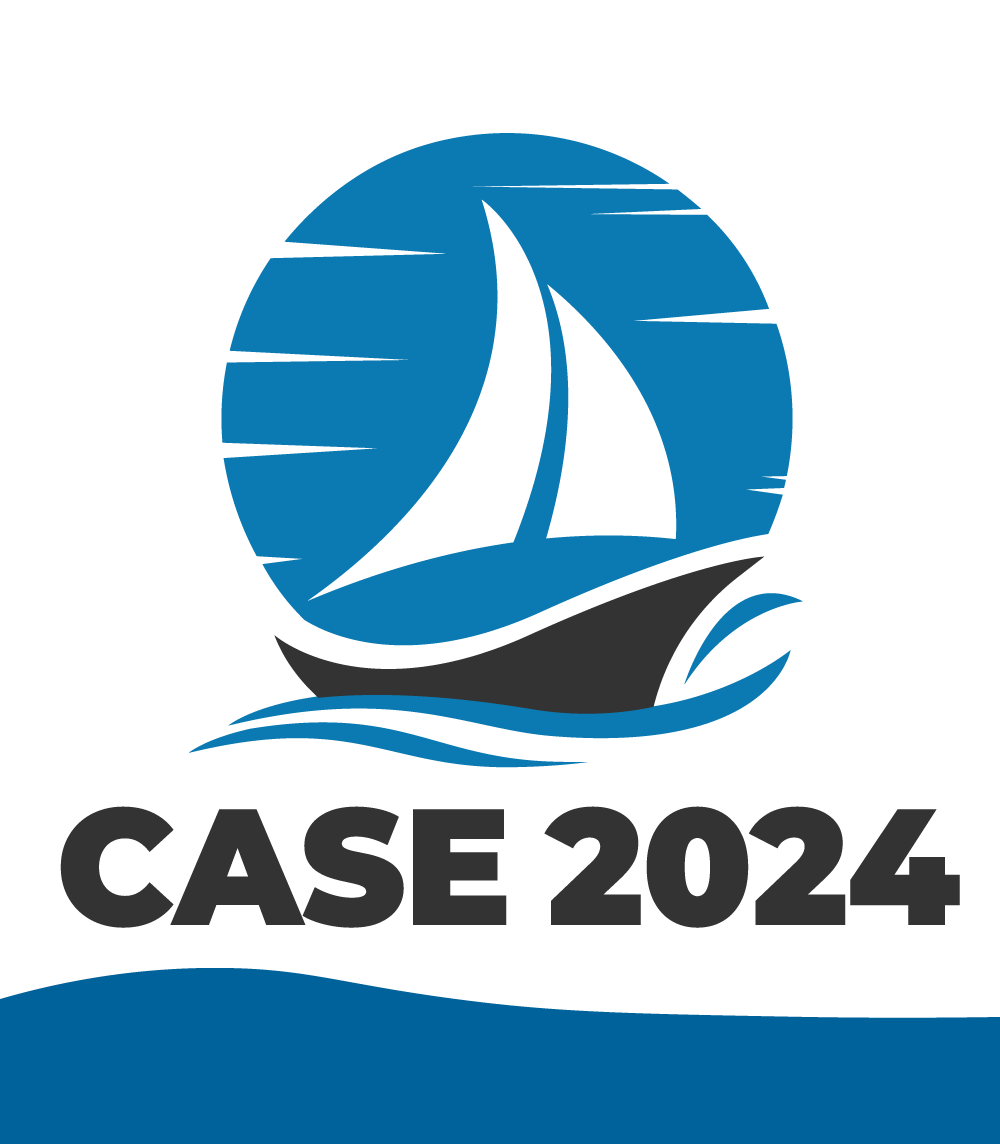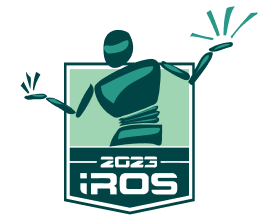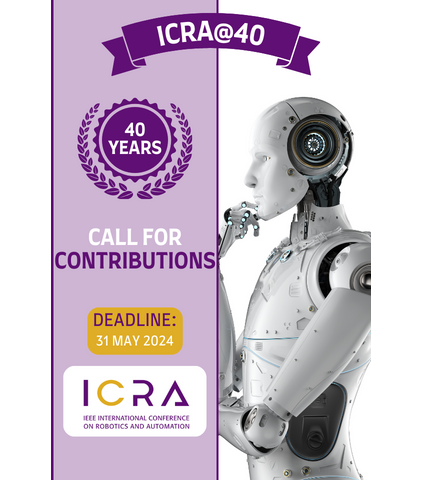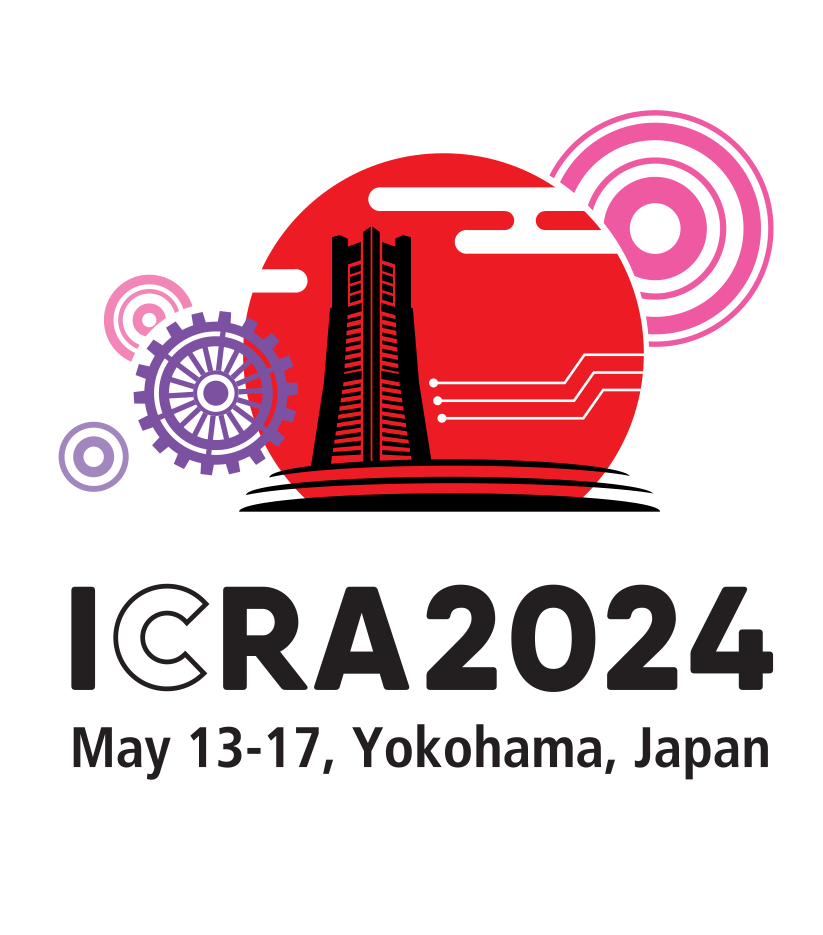The 2017 International Conference on Robotics and Automation (ICRA) is inviting teams to participate in the Robot Challenges
DJI RoboMasters Mobile Manipulation Challenge
http://www.robomasters.com/show-66-225.html
Team Registration Deadline: 13 January 2017
DJI initiated RoboMasters in 2015 as an educational robotics competition for students around the globe. The annual competition attracted teams who competed on building ground robots that used shooting mechanisms to battle with other robots, and the performance of the robots were monitored by a specially designed judging system. The competition is designed not only to entertain, but also to draw more attention from the general public to robotics. To encourage more participation in shaping the future of robotics, RoboMasters 2017 includes, as a special event, the ICRA 2017 DJI RoboMasters Mobile Manipulation Challenge.
This is a ground robot challenge that examines the application and competence of technologies that include positioning, object grasping, force control, target identification, and system stability. Teams are challenged to develop a lightweight mobile manipulator that can autonomously pick, transport and stack building blocks, and will compete on the bases of completion time and assembly height, while meeting the specified weight and size constraints on the robot.
The competition is suitable for researchers and students with interest and background in autonomous robotic platforms, intelligent navigation and manipulation technologies. The competition is open to everyone around the world regardless of age, nationality and academic qualifications. Participating teams are free to select the components and modules necessary for developing their own robot, and can opt for a RoboMasters mobile base. Finalists stand to win a cash prize and some of the latest innovative products from DJI.
Humanitarian Robotics and Automation Technology Challenge 2017
http://www.inf.ufrgs.br/HRATC2017/
According to the UN Mine Action Service, landmines kill 15,000?20,000 people every year (mostly children) and maim countless more across 78 countries. Demining efforts cost US$ 300-1000 per mine, and, for every 5000 mines cleared, one person is killed and two are injured. Thus, clearing post-combat regions of landmines has proven to be a difficult, risky, dangerous and expensive task with enormous social implications for civilians.
Motivated by these considerations, the IEEE Robotics & Automation Society Special Interest Group on Humanitarian Technology (RAS SIGHT) is inviting the academic and non-academic community to participate in the second Humanitarian Robotics and Automation Technology Challenge (HRATC) at the 2017 International Conference on Robotics and Automation (ICRA 2017) to be held in Singapore.
Following in the footsteps of the success of the HRATC Challenge that was held at ICRA in consecutive years from 2014 to 2016, this fourth HRATC edition will continue to focus on promoting the development of new strategies for autonomous landmine detection using a mobile (ground) robot.
The Challenge will take place in three phases: 1) Simulation Phase, 2) Testing Phase, and 3) Finals Phase. The strategies developed by the participating teams will be objectively and quantitatively evaluated according to the following criteria: exploration time and environmental coverage; detection and classification quality; and landmine avoidance. Teams will be progressively eliminated after each phase and the remaining teams would move on to the next phase culminating in the Challenge (Finals) phase at ICRA 2017. It should be noted that the teams do not need to purchase or build a robot instrumented with sensors or any of the accompanying software. Every team can participate remotely in each of the phases.
Mobile Microrobotics Challenge 2017
https://sites.google.com/site/mobilemicrorboticschallenge/
The IEEE Robotics & Automations Society (RAS) Micro/Nano Robotics & Automation Technical Committee (MNRA) invites applicants to participate in the 2017 Mobile Microrobotics Challenge (MMC), in which microrobots on the order of the diameter of a human hair face off in tests of autonomy, accuracy, and assembly. Teams can participate in up to three events:
Autonomous Mobility & Accuracy Challenge: Microrobots must navigate within a grid of waypoints, fabricated or superimposed on the substrate. At the competition, each team will be given a list of waypoints to hit (targets), and waypoints to avoid (obstacles). The objective is to hit the most targets while avoiding the most obstacles, while moving as rapidly as possible.
Microassembly Challenge: Microrobots must assemble a planar shape out of multiple microscale components located in a confined starting region. This task simulates anticipated applications of microassembly for medical or micromanufacturing applications.
MMC Showcase & Poster Session: Each team has an opportunity to showcase and demonstrate any advanced capabilities and/or functionality of their microrobot system. Each participating team will get one vote to determine the Best in Show winner.
Soft Material Robot Challenge
https://sites.google.com/view/softrobotchallenge2017
Team Proposal Deadline: 15 January 2017
The Soft Material Robot Challenge invites participants from across the world to demonstrate their robots actuated using soft materials. This challenge provides an international platform to showcase soft robotics research and aims to promote research in the field of soft robotics and applicability to on?field competence. The challenge includes two categories, namely the soft component technologies challenge, and the soft robots speed competition.
* Soft component technologies showcase: Showcase newly developed soft robot technologies at Soft Component Technologies Challenge. Develop, demonstrate and document a new actuator, sensor or other component technology that advances the field of soft robotics. The entries will be judged for significance, originality, functionality and quality of documentation. The shortlisted entries will be required to demonstrate their prototype at the competition venue in ICRA 2017.
* Soft robots speed challenge: This section of the challenge aims to pick the fastest robot on land completely driven by soft actuators. The teams are required to abide by the following regulations in designing their robots:
- The robotic body should be made of soft materials. Robots which are completely driven by soft actuators are highly encouraged.
-The dimensions of the robot cannot be larger than 1m x 1m x 1m.
-Teams are free to use on?board or off?board power supply (bonus points for untethered robots ?robots with on?board power). Only inlet to 220 V power socket shall be provided. If a team chooses to use off?board power sources, all the wires/conduits connecting to the robot should be slack at all times during the run.
Please visit the respective challenge websites for detailed information on the challenge tasks, entry instructions, schedule, and rules.







